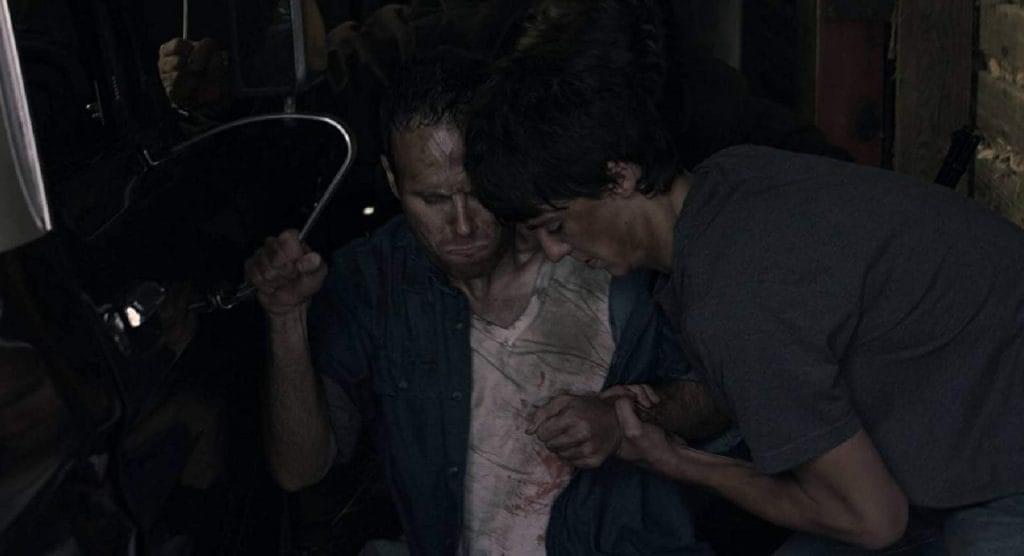
One star is for a film that is both an intense displeasure to watch and is horribly made. Two stars are for the mundane but equivocally putrid. Three stars is the grade for a well-thought film with unmistakable strengths that I enjoyed but wasn’t totally captivated by; four or five stars go to the artistically effective and subjectively super-satisfying. I employ this rubric for rating films and nine times out of ten, it works. “Last Full Show” (Mark V. Reyes, 2004), however, defies this system and renders itself “un-star’able.” This eighteen minute-long film peruses through a unique and evanescent relationship between a young teenaged boy, Cripsin (Frances Villanueva), and an older man, Gardo (Sugus Legaspi). Set in Manila, Philippines and briefly touching the subject of the gay community there, “Last Full Show” commences by placing Crispin and Gardo in their respective worlds.
Crispin is a student probably in junior high. That he has a chauffeur who drives a pretty nice car suggests that Crispin’s family is financially secure. Gardo is standing at the rear of a movie theatre. Until his friend Jess (Jeremy Aguado) enters the scene and they have a chat, it is difficult to place Gardo in a social role (brother, employee, harmless patron, etc). Once the conversation gets going, though, it becomes apparent that Gardo and Jess are part of Manila’s gay underworld—minus the strobe lights, goth-punk attire, and secret passwords to join. The scene they’re involved in takes place in a movie theatre that shows R rated films. For reasons the film doesn’t fully and adequately explain, Crispin asks his driver to drop him off at the cinema. He bribes the ticket lady (Mae Panner) into letting him watch the show. Jess dares Gardo to sit next to the boy. Thus marks the beginning of a peculiar relationship.
The actors are to be commended for portraying their characters and the narrative situation without causing misinterpreted perversion. Although the motion and visualization of an adult male softly kissing a teenaged boy on the mouth pushes your moral or philosophical comfort level, Sugus Legaspi and Frances Villanueva’s performances do not connate a dynamic of predator and prey. What it does make you feel is almost too bizarre for words. Yes, there are social conventions that tell us we should disapprove, but perhaps due to the ambiguity of whether or not Crispin’s receptiveness is characteristic behavior we cannot be sure of our judgment. When we see a wall of movie ticket stubs later in the film, are we to assume that Crispin has frequented other movie theatres that cater to the same clientele? Or that he went to the cinema hundreds of times since meeting Gardo? Nothing about Crispin’s actions sufficiently confirms for us that his fling with Gardo is a representation of sexual curiosity.
Therein lies the cause of my rating dilemma. My personal and critical impressions of the film do not correspond to the implications of the stars (not even half-stars). If I were to ignore the evaluation comments correlated with each star and give it a middle-ground grade (three stars), my gut would protest. “Last Full Show” is worthy of an audience, but it does not instill in me the decisiveness needed to grant it a rating I feel it deserves.
